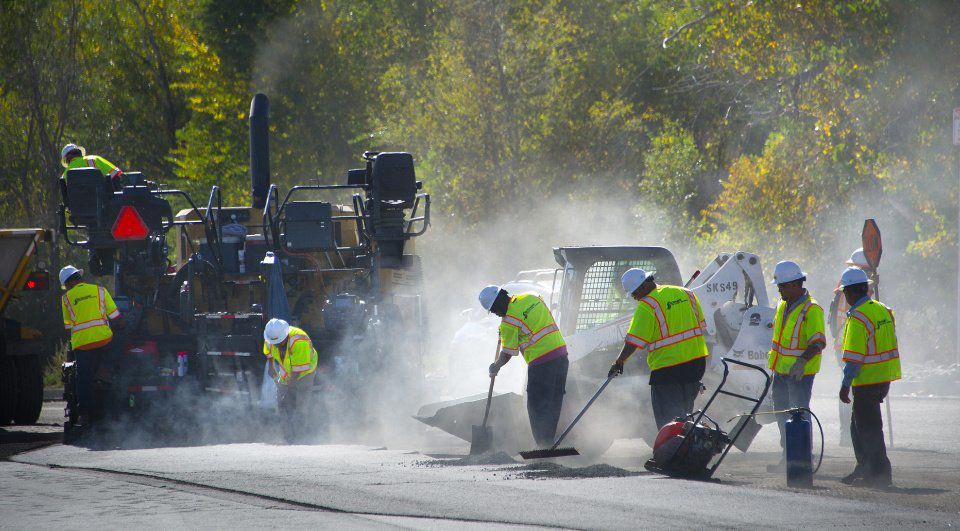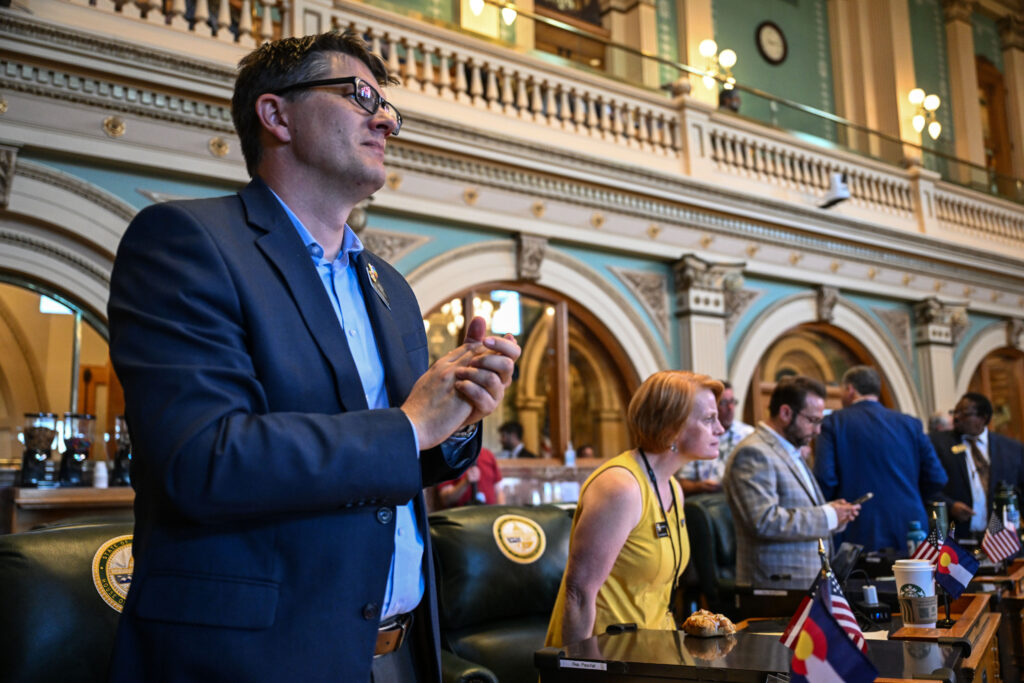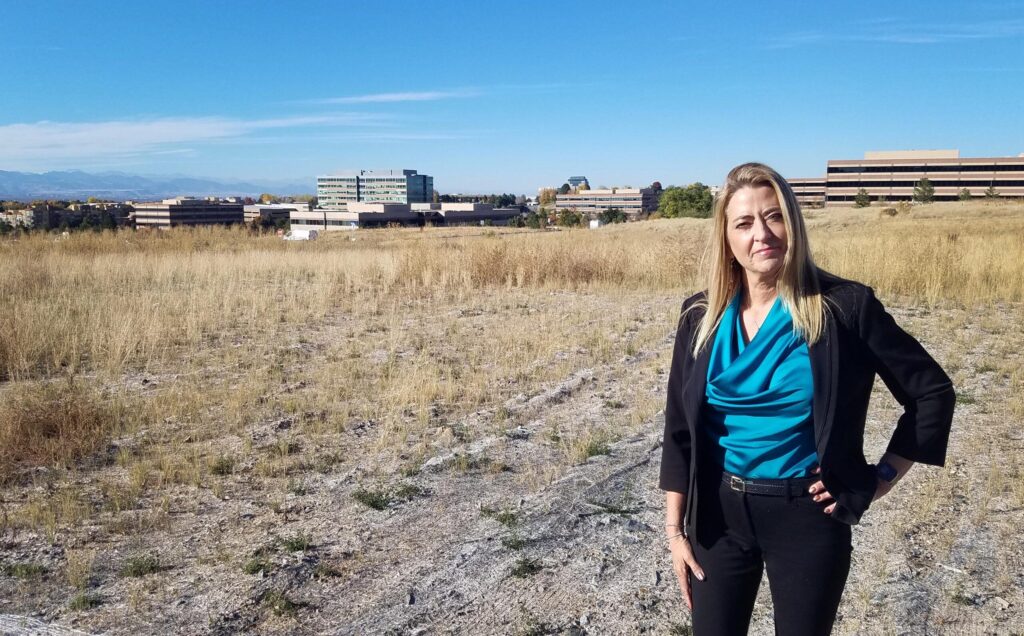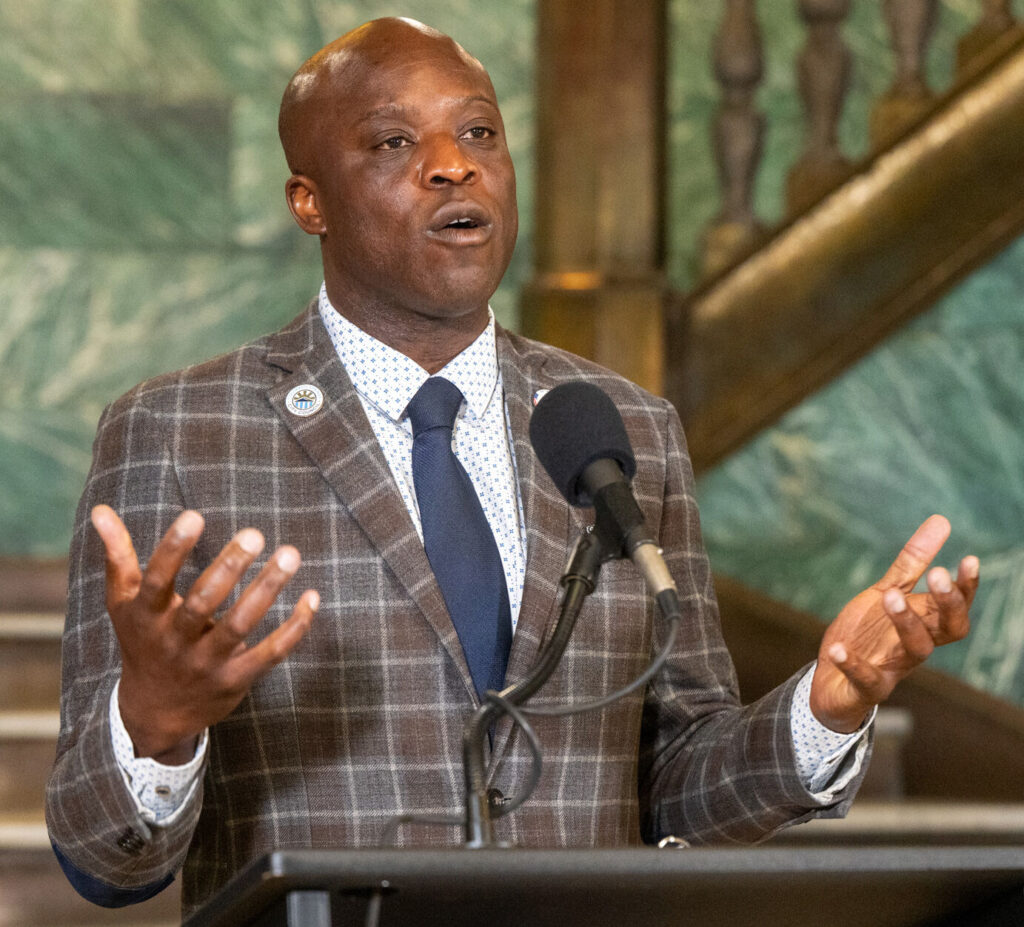Colorado lawmakers wrap up special session, pass property tax deal
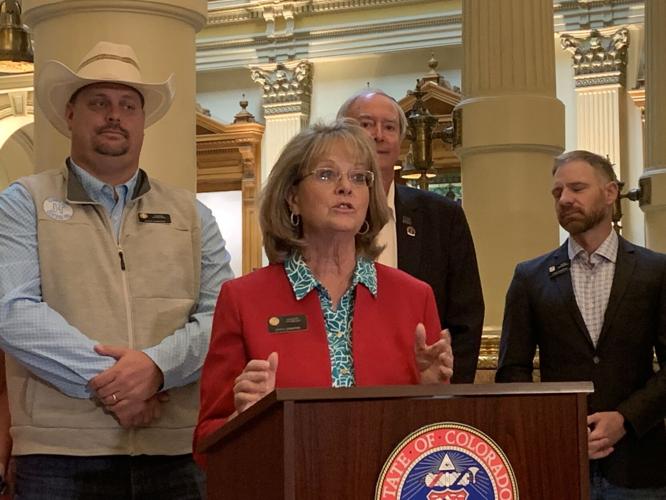
Colorado’s lawmakers on Thursday concluded a special session by passing a compromise measure that will reduce property tax liabilities for residential and business owners and, in return, mean withdrawing two initiatives containing deeper tax cuts from the November ballot.
The final vote on House Bill 24B-1001 — the deal crafted by legislative leaders, the governor, and the ballot measure proponents — passed on a 30-4 vote in the state Senate Thursday morning.
The state House had approved it on a 45-18 vote earlier.
The votes in the two chambers ultimately showed overwhelmingly support for the proposal, even Democrats and a few Republicans balked at the deal.
The deal now goes straight to Gov. Jared Polis, who is expected to sign it.
The state Senate took the last action of the second special session of the current General Assembly, approving the bill that will result in the withdrawal of Propositions 108 and 50.
Some lawmakers said the initiatives would have devastating impact on the state budget, particularly K-12 education. The initiatives’ proponents argued that the measures are necessary because lawmakers and the governor have failed to provide sufficient and meaningful relief to Coloradans facing massive property tax hikes, as high as 50% in some urban counties.
Lawmakers had passed various short-term property tax cuts until this year, when they adopted Senate Bill 24-233, which sought to provide $3.7 billion in property tax relief over the next three years.
For 2025 only — and under SB 233 — the assessed value on residential properties would be 6.7%. Beginning in 2025, it changes to a 10% reduction in home assessment values for homes valued at up to $700,000 plus a 6.95% assessment rate.
However, if voters adopted the ballot measures, SB 233 contained a repeal provision.
Proposition 108, which sought statutory changes, would reduce residential property assessment rates to 5.7% and non-residential property assessment rates to 24%. The state would be required to backfill the lost property tax revenue, estimated at as much as $3 billion in general funds, or about 25% of the available money from this revenue pot annually.
Proposition 50, which seeks to amend the state constitution, would impose a 4% annual cap on property tax revenues.
The two groups said they would withdraw their measures from the ballot if the deal is passed and signed by the governor. They have until Sept. 6 to do so.
Property taxes have become the defining issue of the last two years at the state Capitol amid skyrocketing home values and escalating property tax liabilities. That’s a result of a legislative ballot referral in 2020 to repeal the Gallagher Amendment, which required a 45-55 ratio of property taxes collected from homes and commercial properties, respectively.
Over Gallagher’s 38-year history, as home values rose, property tax assessment rates for homes had to be reduced, an action routinely taken by the legislature biennially. The result was that commercial properties ended up paying four times the amount of property taxes paid by homeowners. Critics said it also negatively impacted rural communities, where home values didn’t rise as fast as they did in urban settings. Supporters it kept tax liabilities in check.
The deal passed on Thursday contained in the special session bill would:
- Cut the effective residential property tax rate to 6.3% or 6.4%, depending on assessment growth
- Reduce the commercial property tax rate to 25%, effective in 2025
- Cap property tax revenue growth to 5.25% for local governments and 6% for inflation growth, whichever is greater, for school districts
- Extend through 2025 the state “backfill” to local governments that see cuts in revenue and as contained in SB 233
- Allow local voters to override the local government revenue cap and school districts to override the cap at the state-wide level
A few Senate Democrats pushed back.
“We knew we had to do something,” said Sen. Sonya Jaquez Lewis, D-Longmont, citing the impact the ballot initiatives would have had.
But the deal presented to lawmakers will still result in a $271 million property tax cut on top of what SB 233 already offers, she said.
Jaquez Lewis said the deal would cost Boulder County $5 million next year. She said the programs affected would include wildfire mitigation, behavioral health services and alternatives to incarceration.
“When we do flat reductions in assessment rate,” she said, it benefits property owners with higher home values.
She said policymakers should have better data to make tax policy more fair and that information should come from county assessors. That data, she said, could determine the number of primary residences and those with second or more homes. The state already tracks that information for homestead exemptions for seniors, disabled veterans, and Gold Star families, she noted.
That echoed the arguments that critics in the state House also made: Progressive Democrats accused the governor and their colleagues who reached the deal of negotiating with “oligarchs” and used the rich-poor dichotomy to press their points.
Sen. Joann Ginal, D-Fort Collins, who supports the bill, said it isn’t perfect, but that it provides additional relief for the education system, both at the K-12 and higher education levels.
Sen. Mark Baisley, R-Roxborough Park, a member of the property tax commission that also reviewed the deal but who voted “no,” said he believes the foundation — fluctuating property values — is on “shifting sand” and that lawmakers did not address it. Earlier in the week, he had offered legislation that he said would have tackled the issue, but it failed to gain support. Addressing the underlying problem would provide more consistent and stable funding for the entities that rely on property tax revenue, he said.
“I like this compromise,” said Sen. Byron Pelton, R-Sterling, in which everyone shares the same pain. “It’s not perfect, but it’s the best way forward for all of Colorado.”
Bill co-sponsor Sen. Barbara Kirkmeyer, R-Weld County, said that, in tax year 2026, the residential rate would have been 6.5%. The compromise puts it at either 6.4% or 6.3%, while Proposition 108 would have set it at 5.7%. For commercial property, SB 233 would set the rate for commercial and agriculture to 25%. The other measures take a few years to get there — the deal drops it to 25% for 2026.
Meanwhile, SB 233 sets the local government revenue growth cap at 5.5%. The compromise provides 5.25% for local government and 6% for schools. But there’s also flexibility, she said, since assessment cycles are two years and the cap is two years — meaning a local government could retain revenues up to 10.5% and schools at 12% over that period.
Following the vote, the other deal’s other sponsor, Sen. Chris Hansen, D-Denver, said it “is the product of partnership, compromise, and a shared commitment to the people of Colorado.”
“In recent years, we have been able to secure a stronger future for Colorado by ending the negative factor, creating a stable foundation for education funding, and establishing sustainable funding paths for higher education and Medicaid providers, and with this policy, we can avoid the devastating impacts of Initiatives 50 and 108 and protect the progress we’ve already made,�? he said.
The Senate also approved the bill making a permanent business personal property tax exemption for agricultural equipment and expanding that exemption to greenhouses that grow crops — fruits and vegetables, primarily — in a “raw and unprocessed state.” That would exclude greenhouses that grow flowers for retail sale, for example.
The bill passed on a 26-8, primarily opposed by rural Republicans. It also now heads to the governor.
Governor, lawmakers react to compromise’s passage
Gov. Jared Polis greeted the conclusion of the special session, saying, “Today we took an important step for Colorado to end the property tax wars.”
“With this bipartisan effort, we are saving hardworking Coloradans money on property taxes, saving households money on utility bills, making our small businesses more competitive, and protecting school funding,” he said. “I look forward to seeing the risky ballot measures pulled down and signing this legislation into law so small businesses and homeowners can keep more of their hard-earned money.”
Rural Coloradans are not likely to benefit significantly from the property tax relief, but their representatives said they are willing to share the pain.
In a news conference, Pelton of Sterling said his communities are unhappy but understand that Propositions 108 and 50 would be devastating, particularly their effect on rural school funding.
“This compromise really helps ensure that we still keep rural schools funded,” Pelton said.
Farmers, ranchers and folks in the agriculture have been paying increases incrementally for 20 years. So, these reductions — the 25% that applies to commercial and agriculture property — will come as a big help, he said.
Sen. Cleave Simpson, R-Alamosa, said rural Coloradans feel that burden differently than taxpayers on the Front Range.
“It goes all the way back to the Gallagher Amendment, when valuations were growing at 10% or 20% on the Front Range, there was no growth or even negative growth” in some of his counties in southern Colorado, Simpson said. He added it became a problem on how to fund critical services with declining property values or reductions in the home assessment rate, which happened under Gallagher.
It was problematic to consider how to fund critical services with a declining — or another reduction in — assessment rates.
“This isn’t perfect, but it does strike a balance, recognizing that we need to do something to help alleviate some of the burden on taxpayers” without overly affecting critical services, he added.
“This is a great day,” said bill co-sponsor Sen. Barbara Kirkmeyer, R-Weld County,
She went back to two examples she’s used throughout the year — her own, noting her mortgage has gone up $800 a month over the last two years, based on higher insurance and higher property taxes, and her 94-year-old neighbor, who is afraid of losing her home.
Even the relief that would come from Proposition 108 wouldn’t have happened for two years, she said, and the neighbor’s property taxes would certainly go up in the meantime.
Now her neighbor should be able to stay in her home, the lawmaker said, “because we got additional property tax relief for her, for all Coloradoans and for small businesses.”
“We did it for our citizens. And I would do it again, and I would go through the last seven weeks all over again just to get this property tax relief,” she added.
In the House, Minority Leader Rose Pugliese, the co-sponsor of HB24B-1001, said her caucus would always look for broader property tax cuts, but in the end, “we wound up in a good compromise position.”
Pugliese said what she was also proud of was what wasn’t in the bill, and that’s language around the initiative process. She said there was talk of limiting the initiative process so that citizens could no longer vote for property tax relief. That was language in an earlier draft of a proposal that ultimately went nowhere.
“I think protecting that initiative process was really important to me personally, and I was glad that we were able to do that through this bill,” she said.
She added that she’s also interested in conversations with local governments about a different way to collect property taxes, including giving people more power over their taxes. The Property Tax Commission could also consider this, she said.
Assistant Minority Leader Ty Winter, R-Trinidad, said citizens are getting behind these initiatives because “obviously, they must think that we’re not prioritizing the things that they want with their tax dollars.”
So, the question is whether lawmakers are spending those tax dollars wisely and putting the money where it really needs to be, he said.
Winter acknowledged that this isn’t necessarily a property tax issue. Still, it involves the state since it has to backfill lost property tax revenue, particularly for schools, which puts pressure on the state budget.
That will take real tax reform, Winter said.
The 2025 regular session of the General Assembly begins on Jan. 8, 2025.
A recap of events
On Aug. 15, Gov. Jared Polis called lawmakers back for a second special session in the last year to deal with property taxes based on concerns about the impacts of Propositions 50 and 108
Ninety-eight out of the 100 returned, missing Speaker Pro tem Chris DeGruy Kennedy, who bowed out to avoid conflicts of interest since he’s now the head of the Bell Policy Center, and Rep. Rod Bockenfeld, R-Watkins, who is battling cancer.
MONDAY
Progressive Democrats complained they were kept out of the negotiations on the main bill leading up to Monday’s start, claiming it was a backroom deal. On Monday, Hansen pushed back against that claim, media availability before the session started. “I strongly reject this notion this was some kind of backroom deal,” Hansen said. “This process is played out in hundreds of bills I’ve been part of the last eight years.”
Kirkmeyer, however, had a different take. In a news conference following the session’s conclusion, she said she had been in constant communication with her caucus on the negotiations over seven weeks on how to get to a balanced approach and a compromise that works “somewhat for everybody.”
She said she invited the proponents of Propositions 50 and 108 back to the table and then encouraged the governor’s office to invite them back for negotiations. “We were constantly releasing information” to everyone in her caucus over that time, she said.
On Monday, 13 bills were introduced: two in the Senate and 11 in the House. The two Senate bills, both concurrent resolutions intended to head to the ballot, were postponed by the Senate Finance Committee. In the House, the deal contained in HB24B-1001 went through a five-and-a-half-hour hearing in the House Appropriations Committee. But it wasn’t quite ready for prime time in the House, so sponsors delayed a House debate overnight to work out amendments.
Speaking in favor of the deal, higher education and K-12 officials feared the cuts that could result from the ballot measures. Firefighters and fire districts, however, asked for a carve-out on the 5.25% revenue growth cap contained in the bill. But lawmakers turned them down.
Only four House bills survived by day’s end Monday; the two bills that head to the governor, a concurrent resolution from Rep. Mike Weissman, D-Aurora, to voters to ask them to require local voters to approve reductions in property tax revenue that result from a statewide ballot measure, and a bill on accessible housing.
A letter from Advance Colorado, Colorado Concern, and the Denver Metro Chamber of Commerce, sent to lawmakers, reiterated the pledge that the ballot measures would be pulled so long as the deal bill passed, and lawmakers kept their word not to attempt any future property tax changes. That included a pledge not to run ballot initiatives on property taxes for six years or three assessment cycles.
TUESDAY
Tuesday, the House debated three of the four bills; the fourth, on accessible housing, never got a hearing in House Appropriations and was deemed lost.
House lawmakers mostly debated two bills: the main deal bill and the concurrent resolution.
During Tuesday’s debate on the resolution, Republicans attempted to amend it. That included a lengthy debate about wolves, on the premise that if local citizens could make decisions about statewide ballot measures on property taxes for their communities, they ought to be able to make other decisions about statewide ballot measures that affect their areas, such as the reintroduction of wolves.
That amendment failed, although six Democrats, primarily representing rural communities, crossed the aisle to vote with Republicans in favor.
Lawmakers debated the measure for over three hours on Tuesday, adding two amendments that McCluskie negotiated overnight and into the early part of the day.
The first amendment affects the cap on property tax revenue growth for local districts.
McCluskie said the caps limit, so the amendment provides a carry-forward for local governments and schools. If they do not hit the ceiling, they can carry forward any of the balance of that cap they did not use into the second year of a two-year assessment period. The cap is 10% for local governments and 12% for schools over a two-year assessment period.
“This provides a smoothing if there’s an up and down in assessed valuations, either growth or decline,” she said.
The second amendment extends the life of the state’s property tax commission, a panel set up in last year’s special session on property taxes. The commission would have another six months, until June 30, 2025, to evaluate “the equity of valuation for assessment established for property” in both Senate Bill 24-233 and HB24B-1001. That means they will be tasked with looking at issues such as primary and secondary homes, a sticking point for progressive Democrats who believed wealthy Coloradans would benefit more from the tax breaks contained in the bills.
Progressive Democrats offered four amendments, but none succeeded.
One came from Rep. Javier Mabrey, D-Denver, and modeled after a bill postponed Monday by the appropriations committee. Mabrey said the property tax deal will disproportionately benefit wealthier Coloradans, although he said renters are much more at risk than homeowners.
“Where is the special session for renters?” he said.
WEDNESDAY
The final vote in the House on HB24B-1001, the bill containing the deal, was 45-18, with 14 of the “no” votes coming from progressive Democrats.
The debate leading up to Wednesday’s vote was lengthy and fierce.
Progressive Democrats accused the governor and their colleagues who reached the deal of negotiating with “oligarchs,” using the rich-poor dichotomy to press their points.
A Republican who balked at the deal called it a “lie.”
“The decision was made to negotiate with oligarchs,” said Rep. Stephanie Vigil, D-Colorado Springs. “This is a very small number of unelected, unaccountable individuals with extremely deep pockets and boundless capacity to run ballot measures. They don’t operate with public scrutiny.”
“(Money) allows them a special audience with the administration that constituents, your elected representatives, could never hope to get,” she said.
Rep. Tim Hernandez, D-Denver, said the cut deal will result in a 5% increase in property taxes in his district, while people who own $5 million homes will see a reduction.
“We call that property tax relief? Instead, our governor and … this legislature is enacting emergency relief for the wealthy who have the social, political, and economic capital to pull dangerous ballot measures that threaten the schools that we’re all fighting for,” he said. “This is a special session for special interests.”
Among the Republicans who spoke against the bill, Rep. Scott Bottoms, R-Colorado Springs, said he will not vote for the measure but wouldn’t vote for Proposition 108, either.
He told his colleagues that the main bill ” is a lie, and we’re being played. “
The sponsors urged a “yes” vote at the debate’s conclusion.
“I know it’s hard,” House Minority Leader Rose Pugliese said. “Regardless of how you vote today, I hear you.”
“I hear you. You asked for help,” she said, directing her message to district constituents and state residents.
House Speaker Julie McCluskie added that lawmakers have strengthened her faith in the legislative branch. The debate has been “fair, important, and critical to how this body moves forward,” she said, adding that the testimony on the affordability challenges has been powerful.
The vote on the concurrent resolution, HCR24B-1001 followed that. It was 44-19, the bare minimum two-thirds required to get it out of the House. The 44th vote was cast by Rep. Elisabeth Epps, D-Denver, who has publicly argued with Weissman, including during last year’s special session.
The bills, and a third on making permanent a business personal property tax exemption on agricultural equipment, headed off to the Senate.
The concurrent resolution went by the wayside almost immediately at the request of Hansen, its Senate sponsor, and an acknowledgment that it didn’t have the votes to get out of the Senate.
While Democrats hold 23 of the 35 seats, they would need a 24th vote to move it forward, requiring support from at least one Republican lawmaker. They weren’t interested.
The hearings on the last two bills were relatively brief, and education officials continued to support them. Fire district officials testified but did not make a pitch for the carve-out they sought on Monday.
On the Senate floor, the debate was also relatively brief, with a filibuster from Sen. Nick Hinrichsen, D-Pueblo, who said the legislature decided that SB24-233, the property tax bipartisan deal that came out of the last session, was the right way to go, he said, adding he despised the bill but voted for it anyway.
“Sometimes, you have to vote for minimal harm,” he said.
He complained that just as lawmakers believed they had done what was necessary, another deal was struck to prevent the passage of Propositions 50 and 108.
He suggested that voters would reject the two measures, saying, “I have faith in the people (and voters) of Colorado.”
He added that he doesn’t want people in one district voting on issues for another.
The ag bill also won preliminary approval; both were ready for Thursday. It passed on a 26-8 vote, largely rejected by rural Republicans, and now heads to the governor.



